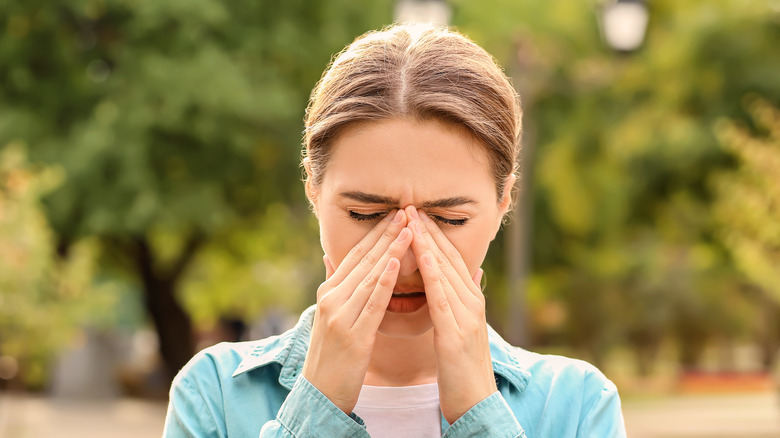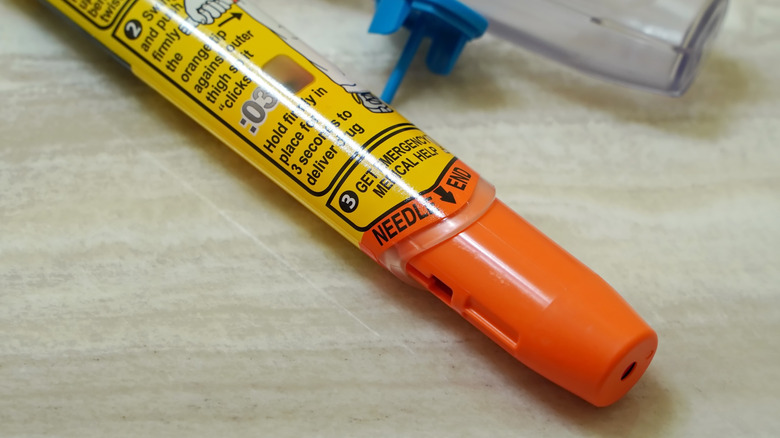
Pixel-Shot/Shutterstock
By Elizabeth S. Mitchell/Aug. 26, 2021 4:05 pm EDT
While there is obviously a major difference in level of concern involved when someone says their “allergies are bothering them” versus they are “having an allergic reaction,” what’s happening in their body is actually the same thing, just at varying levels of severity.
According to the Mayo Clinic, an allergic reaction is what happens when your body identifies a foreign substance as harmful, even though it isn’t, and launches an immune response in retaliation. Whether that substance is pollen, a type of food, or even a fragrance, your body is essentially causing inflammation to “fight off” the thing it deems dangerous, and that inflammation is what causes the digestive upset, blocked sinuses, rashes, and even the closed throat and severe dangers of anaphylaxis, which is a severe allergic reaction which can be life-threatening.
Signs of an allergic reaction and what to do

If you have an allergy, whether severe or minor, you are in good company; roughly 30% of adults and 40% of children in the U.S. are allergic to something (via Web MD). The nost common allergens are animal dander, bee stings, medications like penicillin, insect bites, latex, plants and pollen, mold, dust mites, and foods including peanuts, tree nuts, shellfish, eggs, milk, wheat, and soy (though virtually any type of food could be an allergen to certain people).
Early signs of an allergic reaction can range from hives, a tickle or itch in your mouth or back of your throat, trouble swallowing, shortness of breath, lightheadedness, or trouble breathing (via NHS.UK). If you are having a mild allergic reaction, taking an antihistamine might help you to feel better. If, however you have tightness in your chest or throat or trouble breathing, you need to call for emergency help right away, and ideally use an Epipen if you have a known severe allergy and carry it with you.
Source: Read Full Article
